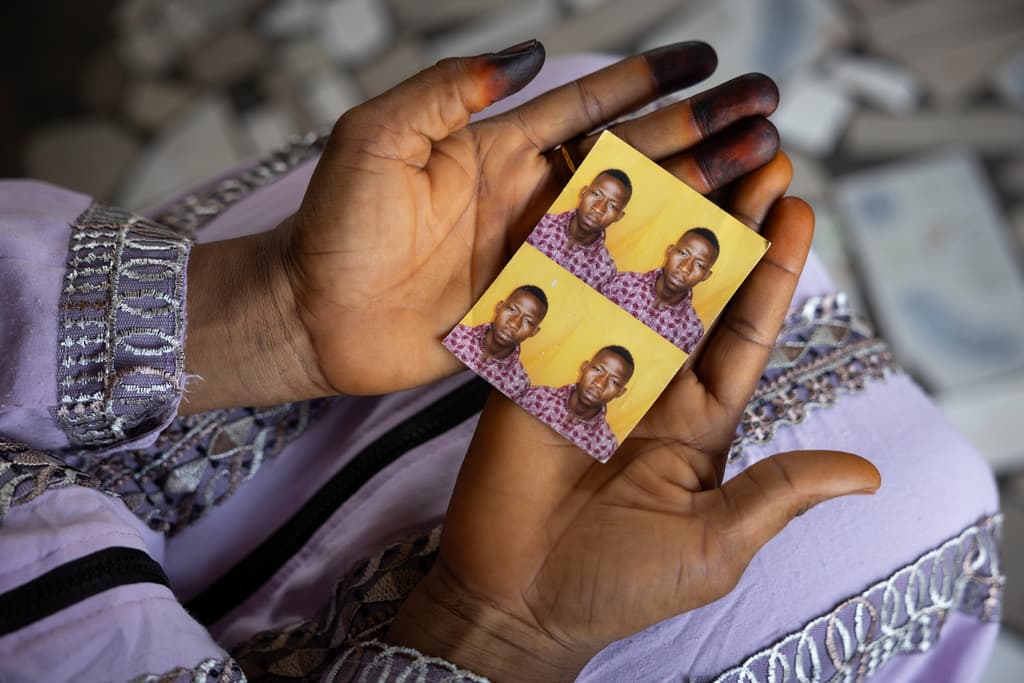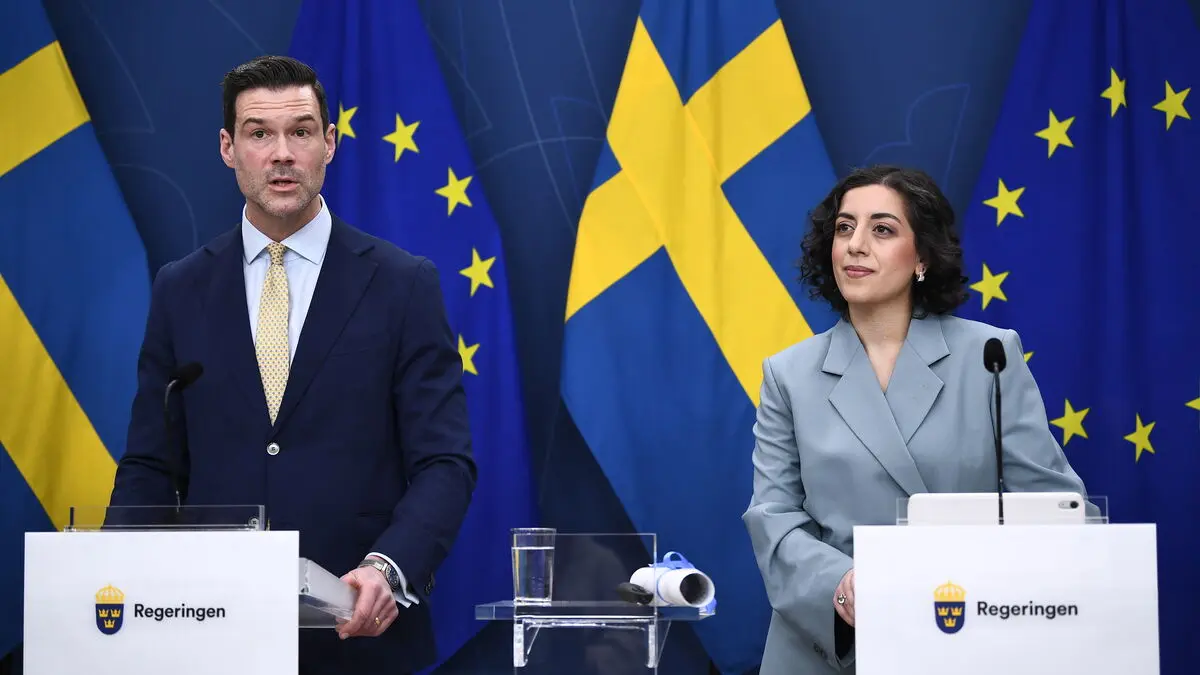Violence and mental illness thrive in Italy's controversial repatriation centers.
Yet, the government in Rome has promised to build more – and has quintupled the time migrants are allowed to be detained.
Few are actually sent home. For some, the time in limbo becomes unbearable.
It is still dark when Ousmane Sylla says his last prayer. At dawn, the migrant detention center's inner courtyard is quiet and still. He takes a last drag and uses the cigarette butt to etch a farewell on the wall: "I miss Africa and my mom. May I rest in peace."
Then he hangs himself.
The 22-year-old Sylla's suicide in February – and the journey that drove him there – has been retold by several Italian and international media outlets. The death at the migrant facility Ponte Galeria outside Rome has shed light on Italy's so-called CPR centers, stamped as "black holes" with inhumane living conditions by human rights organizations. Here, migrants who enter Italy without permission, who are not considered eligible to seek asylum, and who are deemed "socially dangerous" by the judiciary are held.
Insight is minimal, but through short video clips published by, among others, the rights organization CILD, the picture becomes clear: mattress-less steel beds, miserable food, violent clashes between staff and inmates. Freezing winters and sweltering summers – in endless limbo.
"Losing all hope"
Testimonies from employees and former inmates in Italian media paint a consistent picture. Migrants walk in circles, kick a ball, and lift water buckets to pass the time. In the tedium, desperation and self-harm grow. Access to healthcare and legal aid is scarce, and the over-prescription of psychotropic drugs is widespread.
Since 2019, hundreds of suicide attempts have been registered at Italy's CPR centers, according to the EU-supported news site Infomigrants. In the month following Ousmane Sylla's death, six more Ponte Galeria inmates attempted to take their lives.
People accumulate so much anger, go crazy, because they lose all hope, said a Tunisian former inmate to the AP news agency in May.
Ousmane Sylla's journey from his home country of Guinea began in 2022. The pandemic had forced him to drop out of school – his parents could no longer afford the tuition. He learned to lay bricks but wanted to sing. In the hope of being able to work and send money home, he decided to give his dream of Europe a chance. The goal was to join his idol, his older brother Djibril, who had already lived in France for several years.
Sent around
The journey was long and went via the Sahara, through Mali and Algeria, to a Tunisian beach and a boat that would take him across the Mediterranean. On July 29 last year, he arrived at the Italian island of Lampedusa and called his family in Guinea, euphoric about having reached Europe.
But the journey through the Italian migration and asylum system had only just begun.
From Lampedusa, Sylla, who lacked a visa and lied about being a minor in the hope of improving his chances of staying, went to Ventimiglia in northern Italy. There, he was denied entry to France and sent back south, to a notorious migrant center in Cassino that was later closed due to reports of mistreatment.
In October, he received a deportation order and was sent to a CPR center in Trapani, where a psychologist first flagged his deteriorating mental health. Months went by without him being able to contact his family in Guinea or his brother in France. When a riot at the center led to a major fire, Sylla was sent in February to Ponte Galeria near Rome.
Four days later, he took his life.
Wanted to go home
Italy's Interior Minister Matteo Piantedosi has described the CPR centers as "fundamental" to the government's migration policy. Earlier this year, the country's far-right government extended the time migrants can be held in the centers from three to 18 months. Prime Minister Giorgia Meloni has promised to build more facilities – both in Italy and abroad – to deter migrants from coming to the country.
Meanwhile, Ousmane Sylla's death has led to fierce criticism from human rights organizations and Italian opposition, who demand that the repatriation centers be shut down altogether. The system is designed to fail, critics argue, since the deportation process ultimately depends on the cooperation of the migrants' countries of origin.
The system is a catalyst for failure, notes migration lawyer Maurizio Veglio to AP.
In the months leading up to his suicide, Ousmane Sylla repeatedly expressed his desire to go home. The dream of Europe was dead anyway. But Guinea has no repatriation agreement with Italy, so instead, his detention was extended.
Accuses the Italian government
In 2023, only 12 percent of all migrants who received deportation orders from Italy were actually deported, according to official figures. The rest remain in limbo or are released with orders to leave the country on their own. Many go underground, and some turn to crime.
These centers are black holes for human rights and humanity. Most of those held here will never be repatriated, said Riccardo Magi, general secretary of the party Più Europa, to Italian newspaper La Repubblica after visiting Ponte Galeria in March.
In April, Ousmane Sylla finally got to go home thanks to a fundraising campaign. On the outskirts of Guinea's capital Conakry, he was laid to rest beside his father.
For the family, the government in Rome bears the blame for their son's death, writes AP.
I am so angry at them. For what they did to my little brother. They abandoned him as if he were not even human, said his sister Mariama Sylla after saying goodbye to her brother.
Mia Holmberg Karlsson/TT
Background: EU and migration
TT
The EU has for many years been plagued by deep disagreement on how to handle migrants and refugees.
In September 2020, EU Commissioners Ylva Johansson and Margaritis Schinas presented a proposal for an asylum and migration pact in the EU for a better-coordinated policy. After years of division, the European Parliament finally voted in April this year on a compressed version of the original proposal.
Primarily, the pact involves strengthened measures at the union's border controls. The idea is to significantly shorten the processing time for migrants – among other things, migrants without asylum grounds will be able to be deported already at the border.
To resolve the highly contested solidarity issue between EU countries, member states will now be able to choose between taking responsibility for asylum seekers, providing financial contributions, or offering operational support.
The plans also include temporary refugee centers at the EU's external borders.
Human rights organizations, as well as political voices on both extremes, have directed sharp criticism at the pact.
Source: European Parliament, TT






